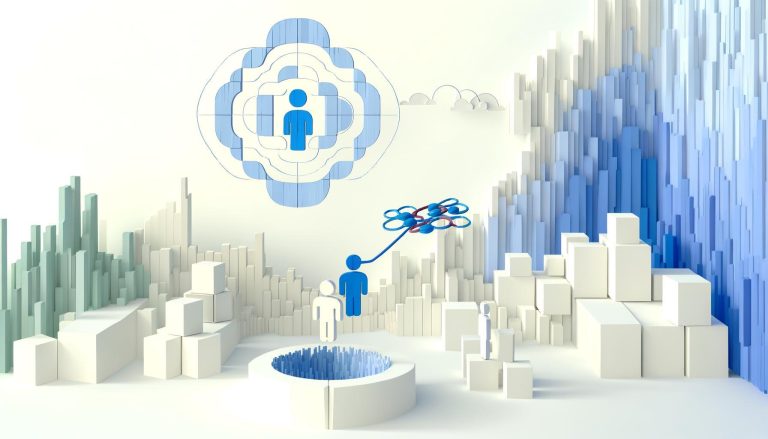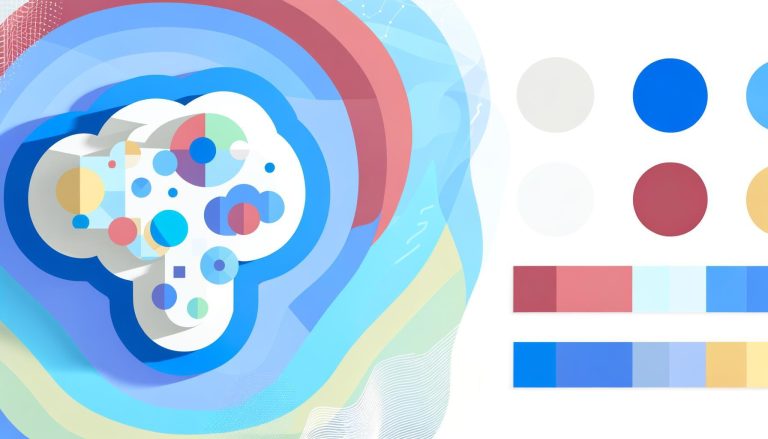Separation Anxiety Disorder (SAD) can be a debilitating mental health issue that affects both children and adults. It often disrupts daily life and can lead to other mental health problems like depression and generalized anxiety disorder. Traditionally, treatment has relied on cognitive-behavioral therapy (CBT) and medication. However, in recent years, the advent of Artificial Intelligence (AI) has shown great promise in transforming how we approach and treat this condition. This article aims to explore the impactful role AI can play in treating Separation Anxiety Disorder, providing valuable insights and practical tips for those affected by this condition.
Understanding Separation Anxiety Disorder
Separation Anxiety Disorder is characterized by excessive anxiety regarding separation from home or major attachment figures. It often manifests through physical symptoms like nausea, headaches, and difficulty sleeping, as well as emotional symptoms such as fear and distress.
Common Symptoms
- Excessive worry about losing a loved one
- Refusal to be alone
- Nightmares about separation
- Physical complaints (headaches, stomachaches) when separation is anticipated
- Difficulty sleeping away from a primary attachment figure
Traditional Treatment Methods
The conventional treatments for SAD include:
- Cognitive-Behavioral Therapy (CBT): This involves teaching coping mechanisms and gradually exposing the person to the source of their anxiety.
- Medication: Antidepressants and anti-anxiety medications may be prescribed to help manage symptoms.
The Role of AI in Treating Separation Anxiety Disorder
Recent developments in AI technology have introduced new, effective methods for treating Separation Anxiety Disorder. By providing personalized treatment plans, continuous monitoring, and advanced data analytics, AI offers a transformative approach to SAD treatment.
Personalized Treatment Plans
AI algorithms can analyze vast amounts of data to create highly personalized treatment plans. Tailoring treatment to the specific needs of the individual increases the likelihood of successful outcomes. For example:
- Adaptive Learning: AI can track patient progress and adapt the treatment plan in real-time, ensuring continuous improvement.
- Predictive Analysis: AI can predict potential relapses or setbacks and adjust the treatment plan accordingly.
Continuous Monitoring and Support
AI-powered apps and devices can offer around-the-clock support and monitoring:
- Real-Time Feedback: Wearable devices and mobile apps can provide instant feedback, helping individuals manage their anxiety effectively.
- 24/7 Availability: AI-powered chatbots can offer support anytime, helping users manage their anxiety outside of traditional therapy hours.
Advanced Data Analytics
Data analytics play a crucial role in understanding and treating SAD:
- Behavioral Insights: AI can analyze patterns in behavior and suggest actionable insights to therapists and patients.
- Outcome Tracking: AI tools can track treatment outcomes more precisely, allowing for better evaluation and adjustment of treatment plans.
Benefits of Using AI in Treatment
The integration of AI into the treatment of Separation Anxiety Disorder offers numerous benefits:
- Increased Accessibility: AI-powered solutions can make treatment more accessible, especially in remote or underserved areas.
- Cost-Effectiveness: AI can reduce the costs associated with traditional therapy by offering affordable, scalable solutions.
- Consistency: AI offers consistent support and monitoring, potentially leading to better long-term outcomes.
Practical Tips for Managing Separation Anxiety with AI
Here are some practical ways AI can help manage Separation Anxiety Disorder:
Using AI-Powered Apps and Tools
Consider integrating AI-powered apps into daily life for real-time support and monitoring. Some popular options include:
- Calm: Offers guided meditations and breathing exercises tailored to relieve anxiety.
- Woebot: An AI-driven chatbot that uses CBT techniques to offer real-time support and advice.
- Headspace: Provides mindfulness exercises specifically designed to reduce anxiety and improve mental wellbeing.
Wearable Devices for Health Monitoring
Wearable devices can track physiological symptoms of anxiety, offering valuable insights into triggers and effective coping mechanisms:
- Fitbit: Monitors heart rate and sleep patterns to help identify anxiety triggers.
- Apple Watch: Offers an electrocardiogram (ECG) feature to monitor heart rate variability, an indicator of anxiety levels.
Smart Environment Solutions
AI-powered smart home devices can create a calming environment to help manage anxiety:
- Smart Lighting: Adjusts lighting to foster a calming atmosphere, aiding in relaxation and reducing anxiety.
- Smart Speakers: Devices like Amazon Echo and Google Home can play soothing music or mindfulness exercises at prescribed times.
Conclusion
AI has the potential to revolutionize the treatment of Separation Anxiety Disorder by providing personalized treatment plans, continuous monitoring, and advanced data analytics. These advancements not only make treatment more accessible and cost-effective but also offer consistent and reliable support for managing anxiety. As AI technology continues to evolve, its role in mental health treatment is likely to expand, offering even more innovative solutions to those struggling with anxiety disorders.
If you’re interested in managing your mental health better, modern apps like Zenora can assist you in tracking moods, habits, and setting personal goals to support your wellbeing. Whether you’re facing Separation Anxiety Disorder or other mental health challenges, embracing AI solutions can be a game-changer in your journey to wellness.





